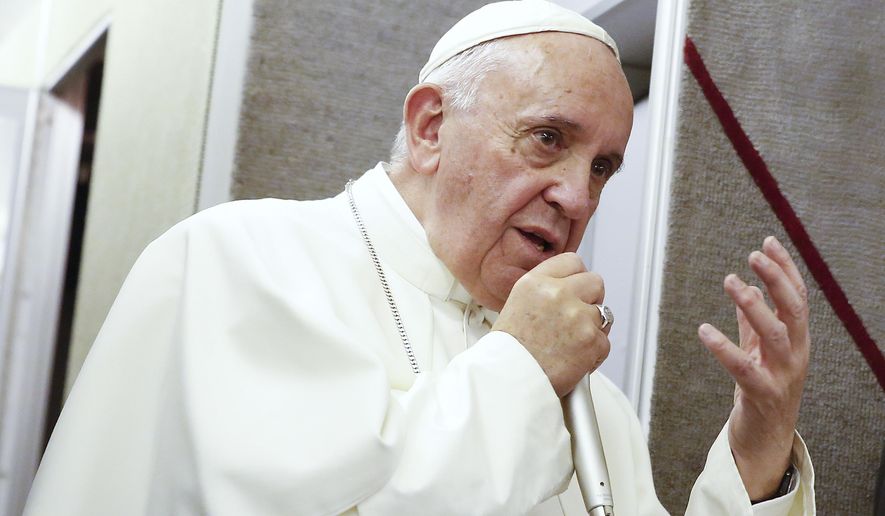BUENOS AIRES | Charismatic and canny, Pope Francis has forged close ties with global power brokers and is said to have swayed President Obama’s views on tough issues such as Cuba and Syria.
But the pontiff has also found time to meddle in the day-to-day politics of his native Argentina — and may have played a behind-the-scenes role in preventing the premature departure of President Cristina Fernandez, his one-time nemesis.
Following the mysterious death of a prosecutor who had indicted Mrs. Fernandez on conspiracy charges, Francis in January stepped in forcefully to keep the president from being deposed in a “soft coup,” The Washington Times learned from a close personal friend of the pope.
Local magnates had plotted to seize the moment and oust the president after Alberto Nisman was found with a gunshot wound to his head hours before he was due to testify on a supposed top-level cover-up of Iran’s suspected involvement in the 1994 bombing of a Jewish community center in Buenos Aires.
But through calls and intermediaries, Francis persuaded “the right people at the right moment” to let Mrs. Fernandez serve our her second term, set to expire Dec. 10, Gustavo Vera, a Buenos Aires legislator and social activist who maintains a close friendship with the former Cardinal Jorge Bergoglio, said.
Worried that such an ouster might be followed by a large-scale devaluation of Argentina’s currency — a measure that would have disproportionately affected the poor — “Francis intervened strongly so that the constitutional continuity [would] be respected,” he said.
SEE ALSO: Cristina Fernandez, Argentina’s outgoing president, determined to protect legacy, clout
Helping a democratically elected leader finish her term should amount to “common sense for any Argentine,” Vatican protocol official Monsignor Guillermo Karcher, a close Francis confidant, said in an interview from Rome.
Monsignor Karcher would not comment on the specifics of the January incident. But the pope has never shied away from involving himself in local politics, a trait highlighted during last month’s visit to the United States, where he weighed in on hot-button topics from immigration to capital punishment and met with Kim Davis, the controversial Kentucky county clerk briefly jailed for refusing to issue marriage licenses to same-sex couples.
The pope respects secular institutions and does not mean to interfere in the affairs of sovereign nations, Monsignor Karcher said. Still, Francis “does speak out on important topics,” he said. “He does not have prejudice against anybody. He speaks with one [side] and the other,” the Vatican official added when asked about the Davis encounter.
The boldness of his pontificate, though, may be felt strongest in his native Argentina, where Francis is said to have pulled strings in day-to-day politics a number of times, even though he has yet to visit his native land in the 2 years since his surprise selection as pope.
In January, he seemed to back the nomination of a young jurist to the Supreme Court, an effort that eventually failed because of the candidate’s inexperience. Some analysts say Francis may even have led Mrs. Fernandez to anoint Buenos Aires Gov. Daniel Scioli over more radical rivals as her party’s nominee in the Oct. 25 presidential election.
The relationship between pope and president, meanwhile, has been the subject of much speculation. Mrs. Fernandez had been among Cardinal Bergoglio’s harshest critics during his time as Buenos Aires archbishop, but following Francis’ 2013 election, she made a point of forging more cordial ties with the Jesuit pope.
SEE ALSO: Pope Francis ‘effect’ seen mostly among Catholics, Democrats, liberals: survey
The pontiff has met with her on more than half a dozen occasions, and the 78-year-old has adopted a “merciful” stand toward the leader known for her harsh rhetoric and confrontational style, Mr. Vera said. “I think he has given her a lesson in humanity,” he said.




Please read our comment policy before commenting.